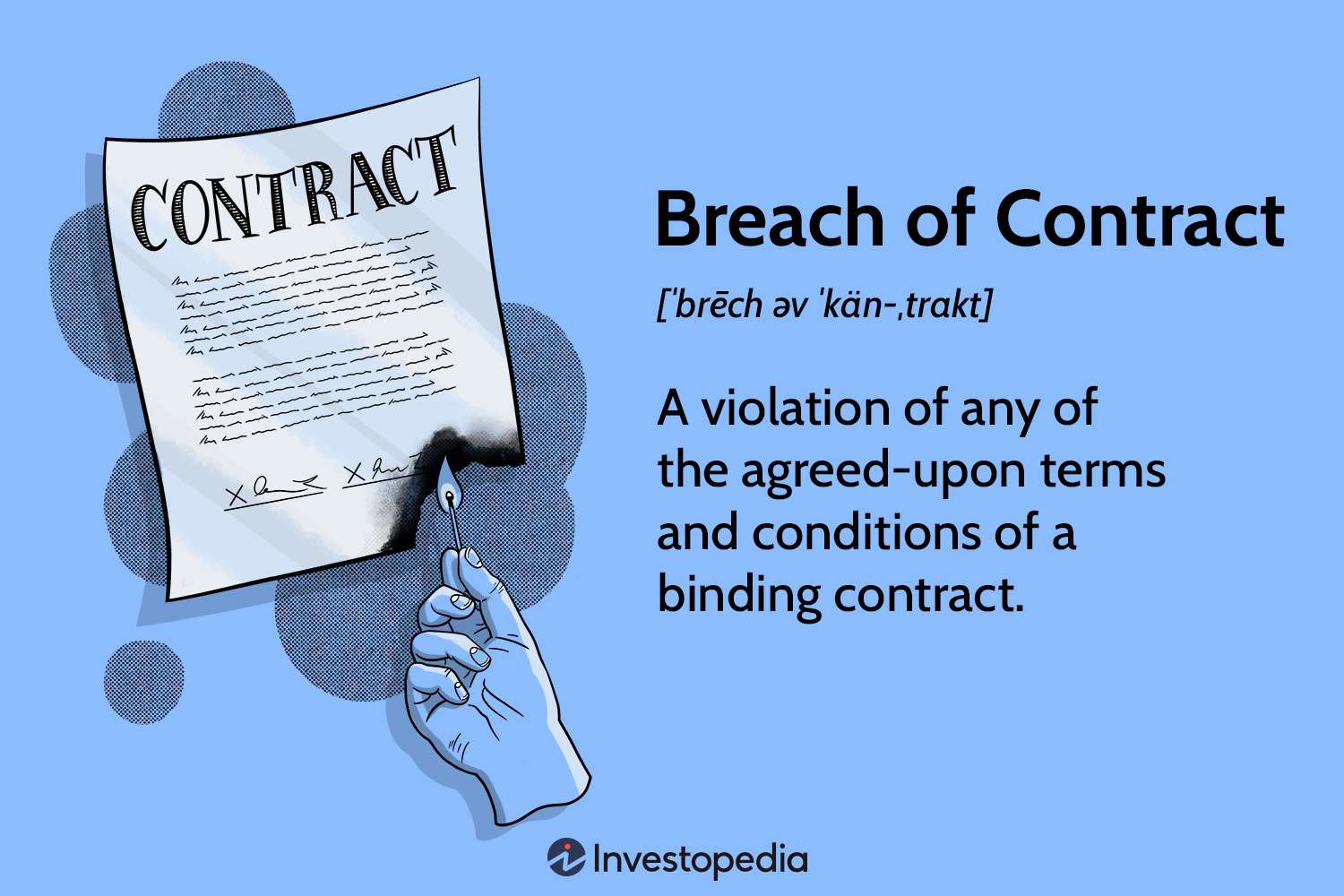Breach of Contract
What is a breach of Contract?
A breach of contract occurs when a party to a contract does not perform their obligations under the contract. A breach may also occur when a party demonstrates that they are unwilling or unable to perform their obligations under the contract. Not all breaches of contract give rise to the right to terminate the contract, so care should be taken, and advice should be sought before attempting to terminate a contract.
How do you prove breach of contract?
The specifics of your contract and the facts of your case will determine whether there has been a breach. In order to establish a breach of contract, you must present proof of the events giving rise to your legal rights.
Different Forms of Breach:
There are three (3) main forms of breach of contract:
- Minor breach of contract
- Material breach of contract
- Anticipatory or Repudiatory breach of contract
Minor Breach of Contract
A minor breach of a contract in Australia is defined as the violation of a non-essential, innominate, or intermediate provision of the agreement. A contract’s non-essential terms are often not subject to right of termination, but they may be the subject of an action to recover damages.
On the other hand, a right to terminate may arise from a substantial breach of an intermediate term or from multiple actions that together constitute a serious breach.
What is a Material Breach of Contract?
A breach of an essential or fundamental term of a contract or lease is referred to as a major breach of that agreement under Australian law. According to Australian courts, a fundamental term is one that is so fundamental to the agreement or so directly relates to its content that the other party may reasonably conclude that the other party has materially failed to perform the agreement at all if it is not performed.
The contract as well as the specific facts and circumstances of each case will establish whether a breach of contract qualifies as a substantial or fundamental violation.
Non-payment under a contract is typically seen as a major breach in the context of debt recovery, meaning that it violates a key provision of the agreement.
Repudiation and Anticipatory Breach
An anticipatory breach of contract in Australia is governed by the doctrine of repudiation. When one party to a contract shows intent to break the agreement, this is known as an anticipatory breach of contract. This enables other parties to file a lawsuit right away and seek compensation or other remedies. For instance, Party A contracts with Party B, a florist, to provide 500 roses for a wedding that takes place in a month. The type, number, and delivery date of the roses are specified in the contract, and Party A promises to pay the agreed-upon amount when the roses are delivered. But two weeks prior to the wedding, she gets a call from Party B letting her know that they won’t be able to complete the order because of an unexpected scarcity of roses, which is considered an anticipatory breach.
What to do After Repudiation Occurs
If a party to a contract repudiated the contract, then the other party can elect to do one of three (3) things:
- Accept the repudiation and terminate the contract;
- Affirm the contract and so the contract continues until (or if) the breach occurs; or
- Elect to Accept the Repudiation and Terminate the Contract.
A party may choose to accept the repudiation and end the contract if one of the parties repudiates the agreement, i.e., indicates that they are unwilling or unable to carry out the agreement to a significant extent. There must be no doubt in this terminating election.
If one party decides to end the agreement following repudiatory behaviour, the injured party may file a lawsuit to get compensation for the repudiation after termination, provided that the behaviour qualifies as repudiation.
Elect to Affirm the Contract
The other party may choose to choose to affirm the contract if one party repudiates it, i.e., indicates that they are unable or unable to carry out the terms of the agreement. A contract’s affirmation is the wrongdoer’s choice to accept the repudiation and carry out the terms of the agreement—if at all—at least until the real breach takes place.
The decision to uphold the contract, as said previously, has to be unambiguous and explicit. Nonetheless, unambiguous behaviour might also be chosen to affirm a contract. However, for an election to have occurred, the aggrieved party must have knowledge of the repudiation to allow him or her to make the choice to elect, either by words or by conduct.
Wrongful Termination after Repudiation
If you think that conduct of the other party amounts to repudiation, and you elect to accept the repudiation and terminate the contract; but the conduct purported to be repudiatory did not amount to repudiation, then the act of terminating the contract can itself be repudiation, allowing the other party to terminate and recover damages.
Extreme caution should be taken before terminating a contract, and specialist legal advice should be sought, as the risk of not doing so could be severe.
Is repudiation a breach of contract?
No, a party may repudiate a contract by indicating that they are unable or unwilling to fulfil their end of the bargain. Usually, this takes place prior to the non-performance. Following the repudiating party’s notice of repudiation, it could be possible for them to fulfil their end of the bargain and avoid a breach. Consequently, in order to accept the rejection and end, this needs to happen prior to the election.
What are the remedies for breach of contract?
Liquidated claims and damages are the potential legal remedies for contract breaches. In circumstances of contract breach, particular performance, injunctions, and occasionally equitable damages are the primary equitable remedies.




